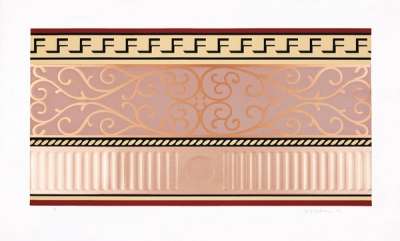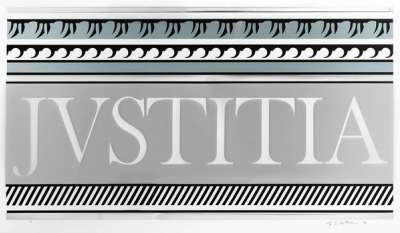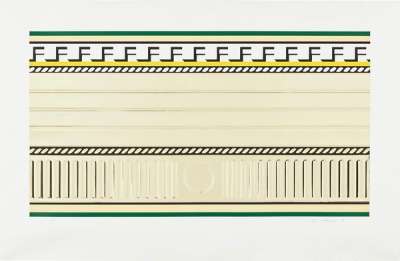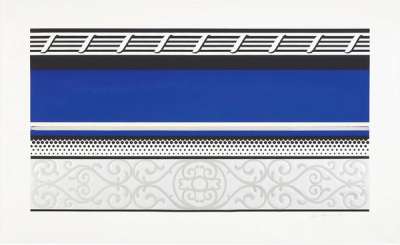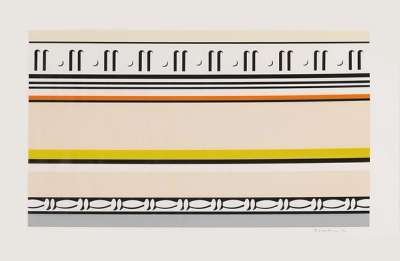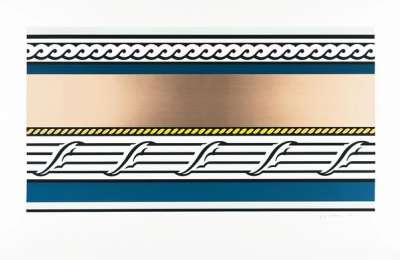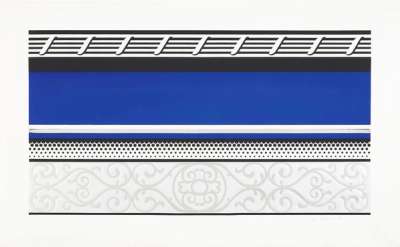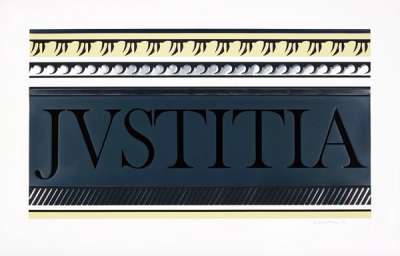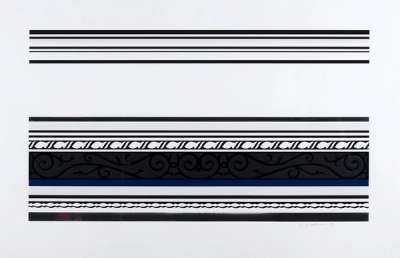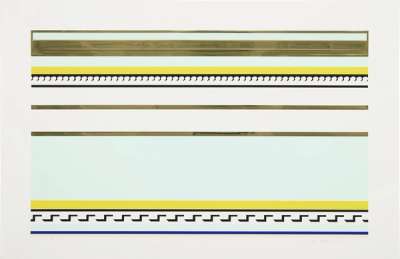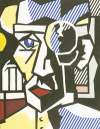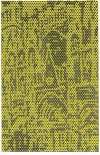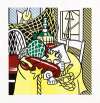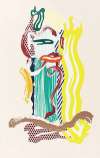Entablature
Roy Lichtenstein's Entablature print series zones in on architectural facades and mouldings, inspired by Classical Greek architecture and found around Lower Manhattan. By this device, Lichtenstein embraces his continued exploration of abstraction, while also interrogating the replication of historical cultural symbols through contemporary means of mass production.
Roy Lichtenstein Entablature For sale
Entablature Value (5 Years)
With £25258 in the past 12 months, Roy Lichtenstein's Entablature series is one of the most actively traded in the market. Prices have varied significantly – from £1329 to £11979 – driven by fluctuations in factors like condition, provenance, and market timing. Over the past 12 months, the average selling price was £5051, with an average annual growth rate of 2.84% across the series.
Entablature Market value
Auction Results
| Artwork | Auction Date | Auction House | Return to Seller | Hammer Price | Buyer Paid |
|---|---|---|---|---|---|
 Entablature VII Roy Lichtenstein Signed Print | 19 Nov 2025 | Christie's New York | £3,953 | £4,650 | £6,500 |
 Entablature IX Roy Lichtenstein Signed Print | 15 Oct 2025 | Rago | £3,230 | £3,800 | £5,000 |
 Entablature IV Roy Lichtenstein Signed Print | 15 Oct 2025 | Rago | £4,675 | £5,500 | £7,500 |
 Entablature V Roy Lichtenstein Signed Print | 3 Apr 2025 | Wright | £4,675 | £5,500 | £7,500 |
 Entablature XA Roy Lichtenstein Signed Print | 8 Jan 2025 | Lama | £3,485 | £4,100 | £5,500 |
 Entablature II Roy Lichtenstein Signed Print | 26 Mar 2024 | Bonhams New York | £4,675 | £5,500 | £7,000 |
 Entablature III Roy Lichtenstein Signed Print | 14 Feb 2024 | Rago | £4,250 | £5,000 | £7,000 |
 Entablature X Roy Lichtenstein Signed Print | 19 Apr 2023 | Sotheby's New York | £4,165 | £4,900 | £6,500 |
Sell Your Art
with Us
with Us
Join Our Network of Collectors. Buy, Sell and Track Demand
Meaning & Analysis
Lichtenstein first started photographing architectural facades around Lower Manhattan in 1971, which we see reproduced in his Entablature series. The artist first started photographing architectural facades and ornamental motifs around Lower Manhattan in 1971.
He zeroed in on a specific type of architectural superstructure made out of a series of mouldings. Inspired by Classic Greek architecture, these elements are referred to as ‘cornice’, ‘frieze’ and ‘architrave’. All three decorative components are usually found atop architectural columns and bear the collective label of ‘entablature’.
These monumental architectural elements provided the artist with ready-made designs, similar to the comic strip and advertisement sources he applied in other artistic endeavours. The artist manufactured two series of paintings around the topic of entablature. The first series of paintings were purely black and white, while the second ones were supplied with colours, culminating in the production of eleven technologically advanced prints in 1976.
Lichtenstein’s Entablatures embrace his persistent artistic concern with abstraction, while also adding a new perspective on the mass replication of cultural and institutional symbols. The artist explored these themes in his prominent Haystack series, Bulls series, and Cathedral series, among others.
Lichtenstein’s Entablature prints employ polished screen printed and lithographed areas. Handcrafted stencils are also utilised here, combined with machine made glossy and matte metal foil elements. The resulting works offer unusual colour schemes and lavish finishes, marking the peak of material experimentation and technical complexity in the artist’s career.
The Entablature prints are elongated and thin, drawing a physical analogy to the original architectural features they were predicated on. The horizontal flow of the ornamentation is also suggestive of such a parallel, alluding to an uninterrupted continuation of the pattern beyond the printed sheet.
